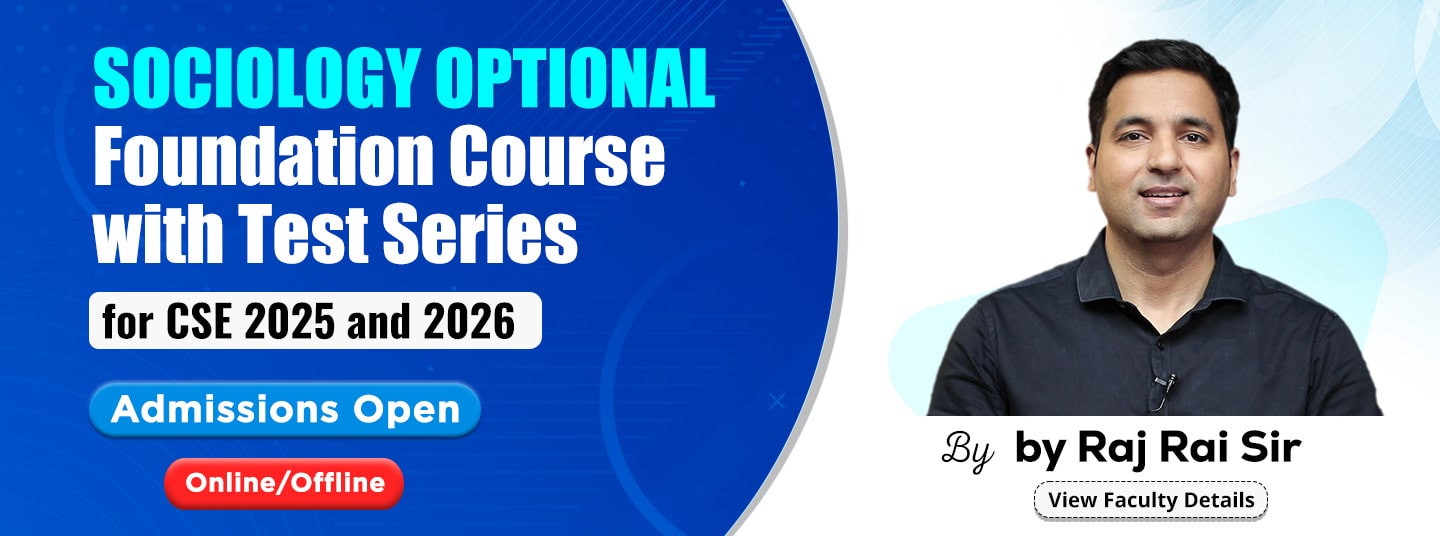The curriculum covers essential topics in sociology, including:
- Introduction to Sociology: A broad overview of the discipline, focusing on basic concepts, scope, and methods.
- Sociological Theories: An examination of major sociological theories, including functionalism, conflict theory, symbolic interactionism, and feminist theory.
- Social Institutions: A study of various social institutions such as family, education, religion, and government, analyzing their roles and functions in society.
- Social Change and Development: An exploration of the processes and factors that contribute to social change, including globalization, urbanization, and social movements.
b. Lecture Sessions
Regular lectures by experienced faculty provide in-depth knowledge of the subject matter. These sessions encourage interaction and discussion, allowing students to clarify their doubts and actively engage with the material.
c. Study Materials
Students receive comprehensive study materials, including textbooks, reference books, and curated resources to support their learning. Suggested resources may include:
- “Sociology: A Brief Introduction” by Richard T. Schaefer: A concise overview of key sociological concepts.
- “Sociological Theory” by George Ritzer: A comprehensive introduction to major sociological theories and theorists.
d. Test Series
Incorporating a test series into the course is essential for assessment and self-evaluation. The test series typically consists of:
- Mock Tests: Simulated exams designed to mimic actual UPSC exam conditions, helping students familiarize themselves with the format and time constraints.
- Regular Assessments: Periodic evaluations to monitor progress and identify areas for improvement.
Importance of the Sociology Optional Foundation Course
1. Customized Preparation
The Sociology Optional Foundation Course is specifically tailored for students who choose sociology as their optional subject in the UPSC examination. This focused approach ensures that students acquire the relevant knowledge and skills critical for success.
2. Enhanced Understanding
The course promotes a deeper comprehension of sociological concepts, theories, and contemporary issues, enabling students to approach questions with confidence and clarity.
3. Improved Examination Performance
With structured learning and regular assessments, students can significantly enhance their performance in both the preliminary and mains examinations.
4. Networking Opportunities
Participating in the Sociology Optional Foundation Course provides students with opportunities to connect with peers, faculty, and professionals in the field, creating a supportive learning environment.
How to Enroll in the Sociology Optional Foundation Course
1. Eligibility Criteria
Students interested in enrolling should meet specific eligibility requirements, which typically include:
- A bachelor’s degree or an equivalent qualification.
- A genuine interest in sociology as an optional subject.
2. Application Process
Enrollment is generally completed through the following steps:
- Online Registration: Many institutions offer an online registration platform where candidates can apply for the course.
- Direct Inquiry: Students may also reach out to course coordinators for information regarding enrollment and deadlines.
3. Fee Structure
The fee structure varies by institution and may include tuition fees, study materials, and access to the test series. Prospective students should inquire about the total cost during the application process.
Key Features of the Sociology Optional Foundation Course
1. Experienced Faculty
The course is typically taught by knowledgeable faculty members who specialize in sociology, providing students with valuable insights and perspectives.
2. Comprehensive Study Materials
Students receive a curated selection of study materials, including:
- Textbooks: Recommended readings that cover core concepts and theories.
- Online Resources: Access to articles, journals, and databases to enhance understanding.
3. Interactive Learning Environment
The course encourages active participation through discussions, group activities, and case studies, fostering a collaborative learning atmosphere.
4. Regular Feedback Mechanism
Students receive consistent feedback on their assessment performance, enabling them to identify strengths and areas for improvement.
Benefits of Integrating a Test Series
1. Self-Assessment
A test series offers students opportunities for self-evaluation, allowing them to gauge their understanding of the material and pinpoint areas that need further study.
2. Time Management Skills
Regular mock tests help students develop effective time management skills, which are essential for completing the actual exam within the allotted time.
3. Familiarization with Exam Format
Participating in a test series allows students to become accustomed to the exam structure and question types, reducing anxiety on exam day.
4. Strategic Preparation
By analyzing their performance in mock tests, students can create strategic study plans that focus on weaker areas while reinforcing their knowledge.
Recommended Study Materials for Sociology
For students enrolled in the Sociology Optional Foundation Course, the following resources are frequently suggested:
1. Textbooks
- “Sociology: The Essentials” by Margaret L. Anderson and Howard F. Taylor: A comprehensive introduction to essential sociological concepts and issues.
- “Social Theory: A Historical Overview” by Robert A. Nisbet: A thorough overview of the development of social theory.
2. Reference Books
- “The Sociological Imagination” by C. Wright Mills: A classic text that explores the relationship between individual experiences and societal structures.
- “Introduction to Sociology” by Anthony Giddens: A widely used introductory text that covers major sociological themes and concepts.
3. Online Resources
Students are encouraged to use online platforms for additional learning resources, such as:
- Khan Academy: A free online resource offering video lessons and practice exercises in various subjects, including sociology.
- Coursera: An online learning platform that provides access to courses from various universities, including topics related to sociology.
Conclusion
The Sociology Optional Foundation Course, along with an integrated test series, provides a comprehensive approach to preparing for the UPSC Civil Services Examination. By focusing on conceptual clarity, analytical skills, and regular assessments, students are well-equipped to excel in their exams.
With its tailored curriculum and supportive environment, the Sociology Optional Foundation Course serves as a vital resource for aspiring civil servants. For more information about the Sociology course and test series, students can explore the following links:
This comprehensive guide aims to inform prospective participants about the benefits and structure of the Sociology Optional Foundation Course, encouraging them to take advantage of this opportunity for academic and professional growth.

